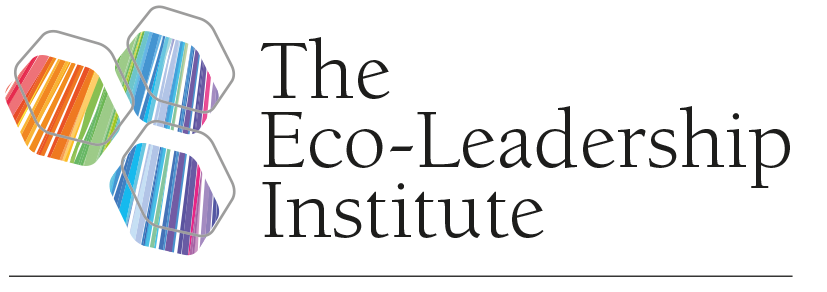
Within an organisation there are interdependent parts which make up a whole, this goes for all stakeholder relationships, and in ever widening circles that eventually reach the air that we breathe. It is about connectivity, interdependence and sustainability underpinned by an ethical and socially responsible stance. (Western, 2019)
Eco-Leadership is an emerging approach designed to guide values-driven people and organisations to masimise their impact in an ethical way. By distributing leadership, reconnecting with our personal and organisational purpose and acknowledging the value in connecting our environmental, social and technological networks, Eco-Leadership offers an approach for leaders to better tackle the unique challenges they face today.
What is Eco-Leadership?
The term Eco-Leadership was coined by Dr Simon Western to describe a new leadership approach for organisations. Eco-Leadership theory evolved from academic research and consultancy work in leading organisations.
Eco-Leadership emerged as a response to three key disruptions:
1. Technological revolution
2. Environmental emergency
3. Globalisation, social change and rising social inequity
All three are interdependent and complex ecosystems that demand an Eco-Leadership response.
Moving to a new leadership approach
Eco-Leadership addresses two inter-related challenges:
• De-centralising leadership - moving away from top-down approaches to enable everybody to take leadership when appropriate, creating more adaptive, participative, and dynamic organisations.
• Responding ethically to social and environmental challenges.
Recognising ecosystems “Organisations are ecosystems within ecosystems” (Western 2019)
Eco-Leadership aligns eco-systemic principles with leadership practices to create ethical, sustainable and adaptive organisations.
It recognises the interdependence between environmental, social, and technological systems, and promotes a holistic systems-thinking approach to address these challenges.
Three principles guiding Eco-Leadership:
• Social Purpose - Creating Shared Value Aims to create shared value for the wider society beyond shareholder profit and organisational growth.
• Participative Organisations - Unleashing Leadership Everywhere Distributing leadership across organisations & maximising individual, team and organisational potential.
• Eco-Mindsets - From Machine to Eco-mindset Moving beyond silos and linear thinking to engage with marginalised voices.
Four qualities of Eco-Leadership:
• Connectivity and Interdependence: Living in a hyper-connected interdependent world.
• Systemic Ethics: Taking into account principles and ideals that impact the wider social and environmental contexts e.g. sustainability, pollution and how organisations treat outsourced workers.
• Leadership Spirit: Re-imagining and re-enchanting the humanitarian perspective.
• Organisational Belonging: Working from the perspective that organisations are connected to the wider society and the environment. Organisations are not separate, closed systems.
Creating adaptive organisations Eco-Leadership empowers organisations to:
• Respond creatively to the challenges and opportunities presented by the rapidly changing world
• Create cultures of innovation
• Promote collaboration and partnerships
• Stimulate learning within organisations
Eco-Leadership pays particular attention to leading from the edge, enabling marginalised voices to be heard, and bringing fresh ideas, experience, knowledge and resources.
Eco-Leadership builds on social movements that have led from the edge, such as civil rights and environmental movements. These show how change can become viral, and small changes can lead to big changes.
Long-term Outcomes of Eco-Leadership
In summary, Eco-Leadership recognises the interdependence between environmental, social, and economic systems. Leaders practicing Eco-Leadership:
• Engage in ethical decision-making
• Consider the well-being of future generations
• Collaborate to address environmental and social issues

